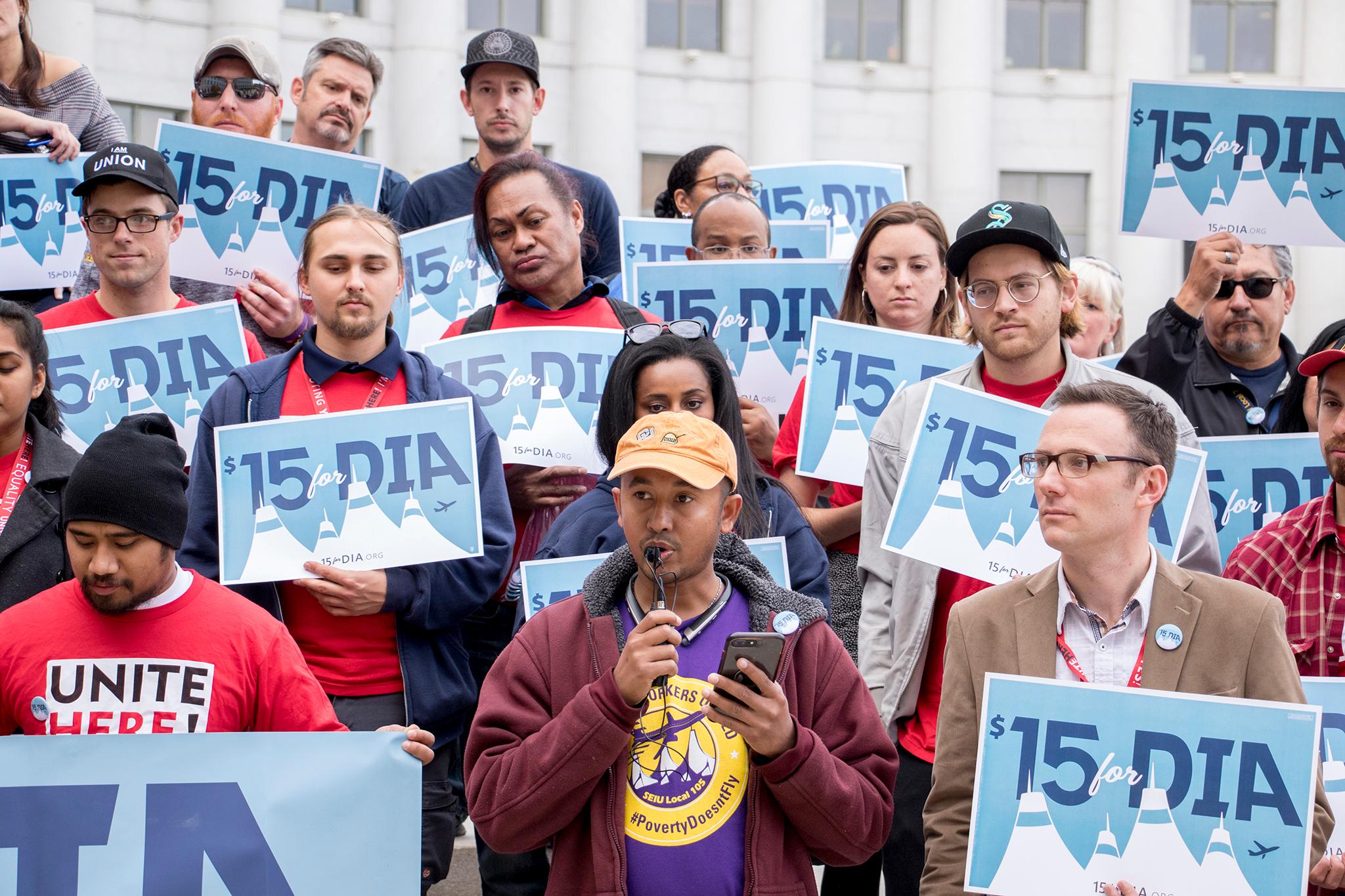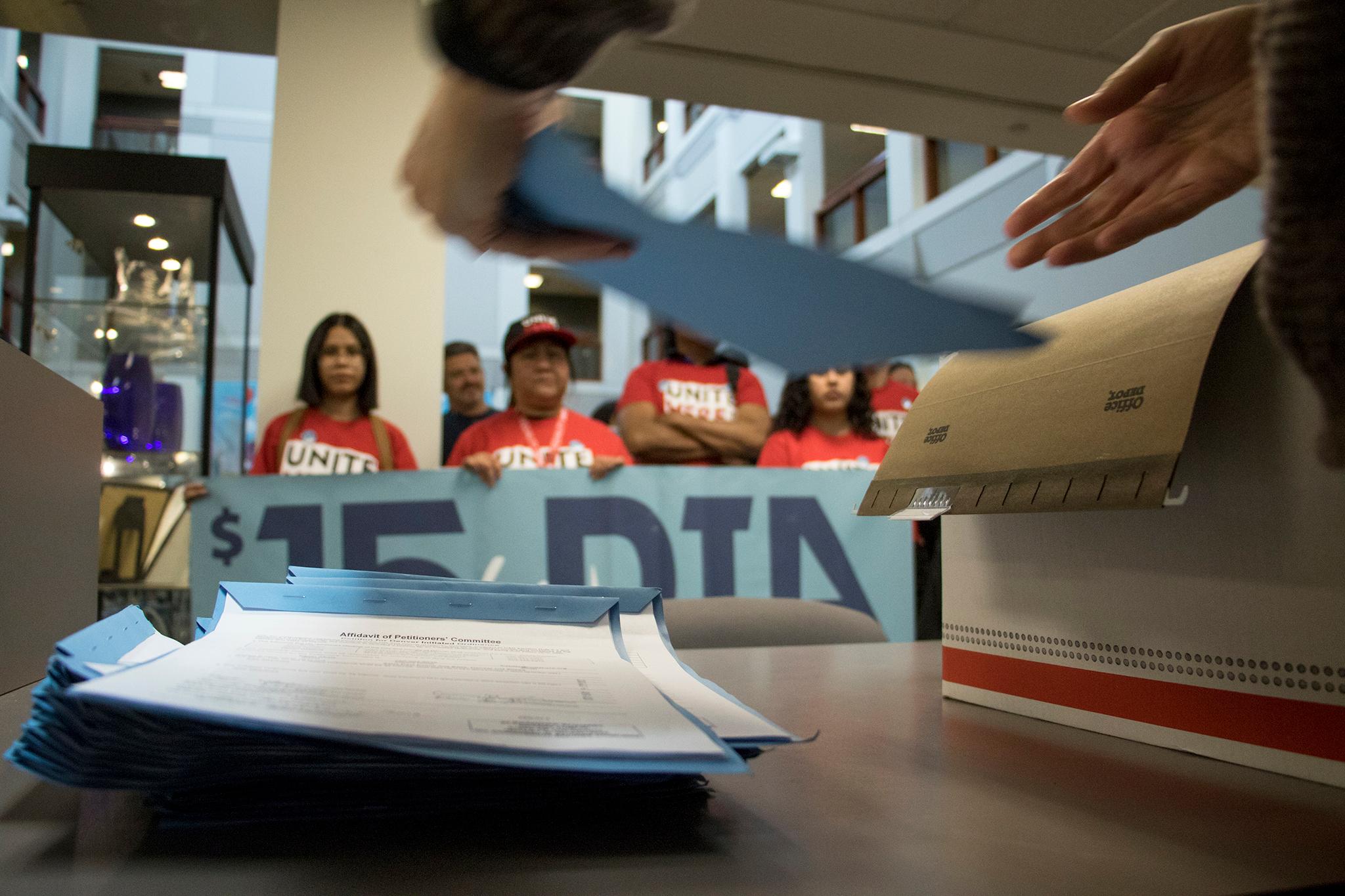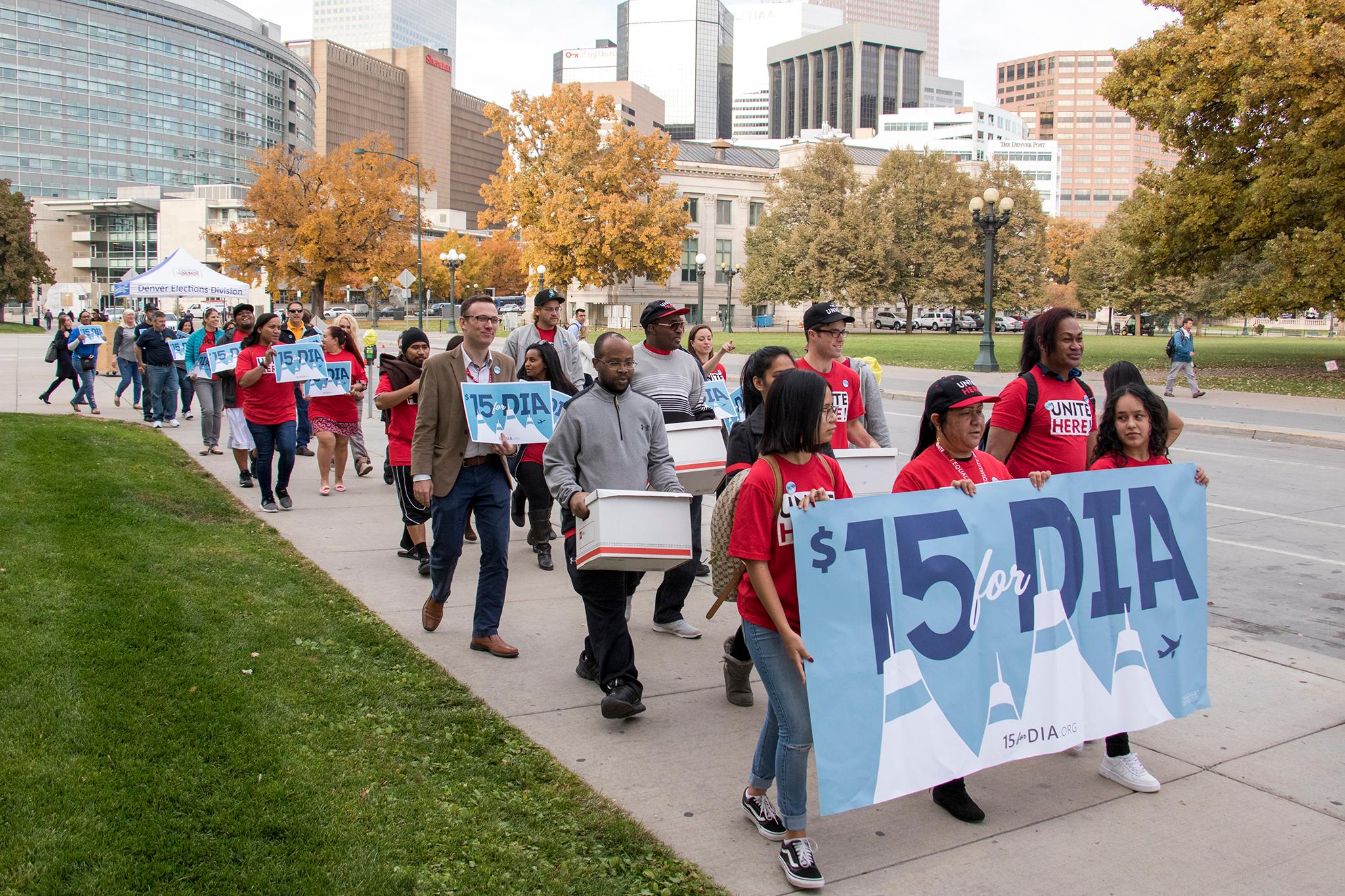The workers who make Denver International Airport tick hope city voters will give them a raise in 2019 with a ballot measure that would bump the minimum wage to $15 for DEN employees.
Employees and union reps delivered more than 17,000 signatures to the Denver Election Division on Tuesday -- thousands more than necessary -- in support of putting the measure on the May 2019 municipal ballot.
"Many airport workers sacrifice a lot to their job," said Shoeb Babu, who told me he worked for Prospect Airport Services, which handles luggage and supports disabled flyers, until about two weeks ago. "I worked long hours at DIA airport and another job delivering Domino's Pizza. So I work 70, 80 hours and my coworkers are the same. Workers deserve living wages so we wouldn't have to work two, three, four jobs."
Babu still works for Domino's and as an Amazon delivery contractor. He also now works for Service Employees International Union advocating for the new wage.

More than 6,000 Denver airport workers make less than $15 an hour, according to Unite Here, a union of workers and organizers behind the ballot measure. About a third of them make minimum wage — $10.20 an hour.
High rents — $1,465 on average -- combined with current airport wages create a "perfect storm," said Diana Hussein, a spokesperson for Unite Here.
"They're basic things that people are struggling to afford -- diapers and milk," Hussein said. "It's as basic as that but they're struggling. It's gut wrenching decisions on how to survive that they have to make because they're simply not making enough."
Airport vendors pulled in over $390 million last year, financial documents show.
Denver's airport concessionaires are "confused" by the claim of low wages.
Concessionaires pay what the market demands, according to Fabby Hillyard, general manager at DJC&A, a lobbyist for the Denver Concessionaires Association. The group represents most airport service companies (think Quizno's, World Wide Money Exchange).
DCA is against the mandated wage. But Hillyard said it's not against paying employees more than $15 "to be competitive."
"We're a little confused by it, actually, because we don't really know what the problem is, to be perfectly honest," Hillyard said in an interview. "We work very hard to pay our employees way above minimum wage."
Yet airport employers have trouble keeping employees. Hillyard says that's a function of the airport's unique work environment. Workers have to pass a serious background check, she said, and the hours can be demanding. DIA is far away from... everywhere... so travel can be unpredictable and expensive.

She also believes Denver employers are caught up in a beef that's much bigger -- one between United and its workers. The airline's 2,700 catering workers -- 550 in Denver -- joined the union on Tuesday, it so happens. It was a touchstone in a larger fight for better pay.
"I think in some ways we're a bit of collateral damage," Hillyard said. "From our point of view, and that's all that we can speak to, we go completely out of our way, every single concessionaire out there, to be as good of an employer as possible."
Hillyard gave benefits and RTD fare passes as examples.
The $15 minimum wage is a movement that started elsewhere.
"Airports workers are just leading the charge," Hussein said.
Seattle and San Francisco are in the middle of raising their minimum wages to $15, over time. Colorado's will become $12 an hour by 2020.
Meanwhile, Marie Jacob, a United employee, says she'll continue to struggle making less. Jacob had to send her son to school in pain because she couldn't afford the dental work he needed, she said.
"How is it that we work for a multi-billion dollar company and still earn less than $12 an hour?" she said. "For me, fifteen dollars would mean I don't have to live in fear of my kids getting sick and not being able to take care of them."
Next step: If the signatures get certified, Denverites will see the minimum wage mandate on the May 2019 ballot.













